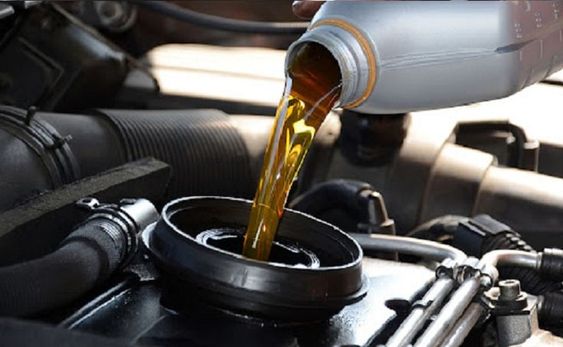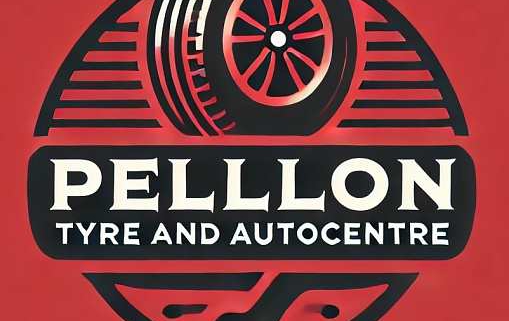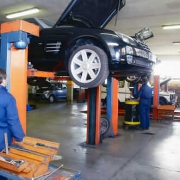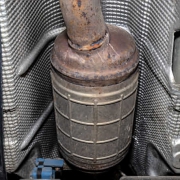Car Servicing Advice: For New Drivers.
Table of Contents
Car Servicing Advice

Car Servicing Advice
The Importance of Annual Car Servicing: Keeping Your Vehicle in Top Condition
When it comes to automotive maintenance, frequent servicing is more than just a recommendation; it’s an essential component of guaranteeing your vehicle’s durability, safety, and performance.
The Importance of New and Young Drivers Learning About Car Servicing
For many new and young drivers, passing the driving test and getting that first car is a moment of freedom and independence. But with that freedom comes responsibility – and I’m not just talking about safe driving. One of the often-overlooked aspects of owning a car is understanding the importance of regular car servicing. This is especially crucial for young drivers who may not yet be familiar with what’s involved in keeping a vehicle running smoothly.
In this article, we’ll explore why it’s essential for young drivers to get clued up about car servicing and how this knowledge can save them time, money, and even avoid potential hazards on the road.
What Is Car Servicing, and Why Does It Matter? Car Servicing Advice
Car servicing is essentially a health check for your vehicle. While an MOT checks your car’s roadworthiness once a year, a service goes deeper, assessing the condition of key components and ensuring everything is running as it should. During a service, mechanics typically check and replace essential items like engine oil, filters, and brake fluids, as well as inspect other critical parts such as brakes, suspension, and tyres.
Here’s why regular servicing is so vital, especially for new drivers:
- Safety: For inexperienced drivers, the idea that a car could suddenly fail on the road might not even cross their minds. However, components like brakes, tyres, and suspension systems wear down over time. Regular servicing ensures that any potential issues are spotted early before they become serious safety hazards.
- Reliability: Breaking down on a motorway or in the middle of nowhere is stressful for any driver, but for a young, less experienced driver, it can be particularly daunting. Regular services significantly reduce the risk of unexpected breakdowns by keeping the vehicle in optimal condition.
- Long-Term Cost Savings: Skipping regular services might seem like an easy way to save money – after all, it’s just an extra expense, right? Wrong. Small problems, if left unchecked, can turn into big (and costly) repairs. Regular servicing can catch minor issues early, often before they turn into expensive repairs. For example, replacing worn brake pads is far cheaper than fixing damage caused by neglected brakes.
- Fuel Efficiency: A car that’s regularly serviced runs more efficiently, which means better fuel economy. For a young driver, this can be a real benefit as it helps stretch those pennies further at the pump. A poorly maintained car can guzzle more fuel, which hits your wallet and the environment.
- Preserving Vehicle Value: For many young drivers, that first car isn’t the dream motor but something that’s affordable and reliable. However, when it comes time to upgrade, a car with a good service history is worth more. Regular servicing not only keeps the car running well but also helps maintain its resale value.
- Key Aspects of Servicing New Drivers Should Understand -Car Servicing Advice
For many young drivers, the terminology and processes involved in a car service can be confusing. Here’s a breakdown of what new drivers need to know:

- Basic Service vs. Full Service: A basic service usually includes an oil and filter change and a visual inspection of key parts. A full service goes deeper, covering more components and sometimes replacing items like air filters and brake fluid. Knowing the difference helps you understand what your car needs and when.
- Service Intervals: Understanding when your car needs a service is key. Most cars require servicing either annually or every 10,000-12,000 miles. However, this varies depending on the make and model, so it’s worth checking the owner’s manual.
- Warning Signs: While you might wait for your next scheduled service, some things shouldn’t be ignored. New drivers should learn to recognise early signs that something’s wrong, like unusual noises, warning lights, or strange handling. Spotting these can prevent bigger issues down the line.
Developing Good Habits Early On
For many young drivers, car maintenance might seem like something only parents or mechanics worry about. However, developing good habits early on can make a world of difference. Here are a few tips for new drivers:
- Learn the Basics: Every young driver should have a basic understanding of car maintenance. Knowing how to check oil levels, tyre pressure, and fluid levels are essential skills that can prevent bigger problems. It doesn’t take much time, but it can save you from a breakdown or costly repairs.
- Get to Know Your Car: Each car is different. Spend a little time reading your car’s manual to understand its specific service needs, recommended tyre pressures, and other essentials. It might not be thrilling reading, but it’s important.
- Budget for Servicing: A car isn’t just about fuel and insurance – regular servicing is a core part of owning a vehicle. It’s wise for young drivers to factor this into their budgeting. Setting aside money each month for routine maintenance can help avoid the shock of an unexpected bill.
- Find a Trustworthy Garage: It’s important to find a reliable and honest garage that you trust with your car. Recommendations from friends, family, or online reviews are a good place to start. Once you find a garage that treats you well and does quality work, stick with them.
A Lifelong Skill- Car Servicing Advice
Understanding car servicing isn’t just about keeping that first car in good shape – it’s a lifelong skill. Whether you’re driving your first affordable hatchback or your dream car in the future, knowing how to look after your vehicle will save you money, keep you safe, and give you peace of mind.
Encouraging new and young drivers to take car servicing seriously helps set them up for a lifetime of safer and more economical driving. Plus, it’s one less thing for parents to worry about!
In conclusion, while it might not be the most exciting aspect of driving, learning about car servicing is vital for new and young drivers. It’s about more than just ticking a box; it’s about safety, reliability, and making your motoring experience smoother and more enjoyable. So, if you’re a young driver or know someone who is, take a bit of time to learn the basics; your car (and your wallet) will thank you in the long run.
Many automobile owners may wonder- Car Servicing Advice
why they need to have their car serviced once a year, especially if it appears to be in good working order. However, the significance of this annual checkup cannot be overemphasised. At Pellon Tyres Halifax UK, we recognise the need for regular auto care and are committed to assisting our customers in keeping their vehicles in the best possible condition. This post will answer the ten most frequently asked questions about annual car servicing and why it is so vital for all car owners.
1. Why is it necessary to service your car on a yearly basis?
A: Annual car servicing is essential for keeping your vehicle safe, reliable, and efficient. It helps spot any problems before they become serious, ensuring that your vehicle operates smoothly and safely.
2. Will frequent servicing help my car’s fuel efficiency?
A: Regular servicing can increase fuel efficiency. A well-maintained vehicle operates more effectively, lowering fuel consumption and saving you money on petrol or diesel.
3. Will annual service extend the life of my car?
A: Absolutely. Regular maintenance keeps your vehicle in top shape, perhaps prolonging its life by preventing wear and tear from escalating into significant mechanical breakdowns.
4. How does annual servicing affect the resale value of a car?
A: Vehicles with a complete service history usually have a better resale value. Regular servicing shows potential purchasers that the vehicle has been well-maintained, making it a more appealing acquisition.
5. What are the consequences of neglecting annual car maintenance?
A: Skipping services can cause increased wear and tear, unexpected breakdowns, and even safety hazards. It may also void your warranty, resulting in more costly future repairs. Car Servicing Advice
6. Can regular maintenance avoid breakdowns?
A: Regular servicing can considerably reduce the likelihood of breakdowns. Mechanics can detect and repair minor flaws during a service before they escalate into major problems that could cause a breakdown.
7. What does an average annual service include?
A: normal annual service comprises engine oil changes, filter replacements, and inspections of brakes, tyres, lights, and fluid levels, among other things. It varies depending on the brand and type of your car.
8. Is annual servicing a legal requirement?
A: While annual servicing, like a MOT, is not required by law, it is strongly advised for reasons of safety, efficiency, and vehicle lifetime. Car Servicing Advice
9. Can I service my car more than once each year?
A: Yes, especially if you have a high annual mileage or an older vehicle. Some manufacturers recommend getting a service every six months or after a particular number of miles, whichever comes first.






Leave a Reply
Want to join the discussion?Feel free to contribute!